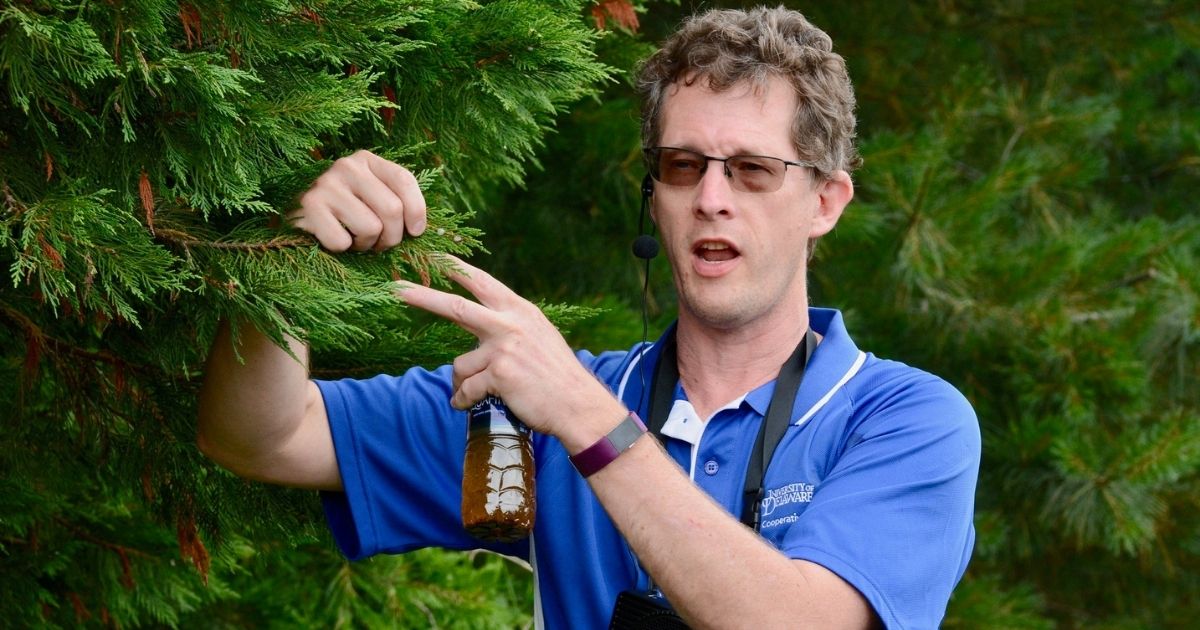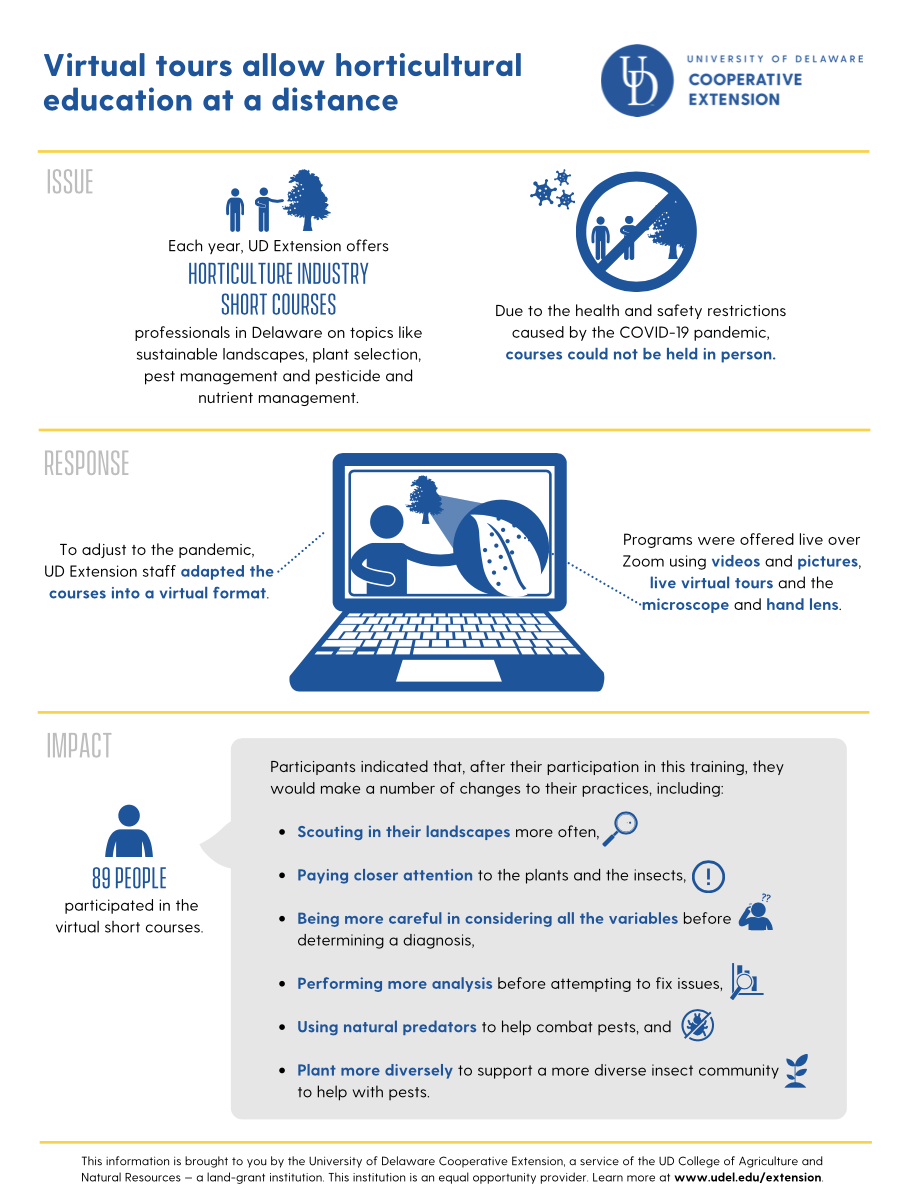
2020 Impact: Virtual tours allow horticultural education at a distance

Virtual tours allow horticultural education at a distance

ISSUE
Each year, the University of Delaware Cooperative Extension designs and offers exciting and informative short courses to horticulture industry professionals in Delaware. Topics often include sustainable landscapes, plant selection and integrated pest management. These courses help satisfy pesticide and nutrient management recertification requirements as well as provide essential information on developments in the industry.
RESPONSE
Due to the health and safety restrictions caused by the COVID-19 pandemic, UD Extension staff adapted the courses into a virtual format. The new online courses focused on pests, beneficial insects and the signs and symptoms used to identify plant pests and diseases. Tips and techniques were shared live over Zoom using videos and pictures, live virtual tours and the microscope and hand lens.
IMPACT
A total of 89 people participated in the virtual short courses. Following each session, participants were invited to complete a survey to measure knowledge gained in the topics covered.
17 percent of attendees learned that insects do not necessarily cause problems in the landscape
11 percent learned that proper plant placement in the landscape relates to plant susceptibility to pests
3 percent learned that a dead branch does not always indicate disease
20 percent learned that spiders are beneficial and help reduce arthropod pest pressure
29 percent learned about reduced-risk control products
17 percent learned that actively searching through the landscape (scouting) is an integral part of a successful IPM program
Participants indicated that, after their participation in this training, they would make a number of changes to their practices, including:
Scouting in their landscapes more often,
Paying closer attention to the plants and the insects,
Being more careful in considering all the variables before determining a diagnosis,
Performing more analysis before attempting to fix issues,
Using natural predators to help combat pests, and
Plant more diversely to support a more diverse insect community to help with pests.
An enthusiastic participant later shared that they appreciated "[the] level of expertise that the instructors have..."
